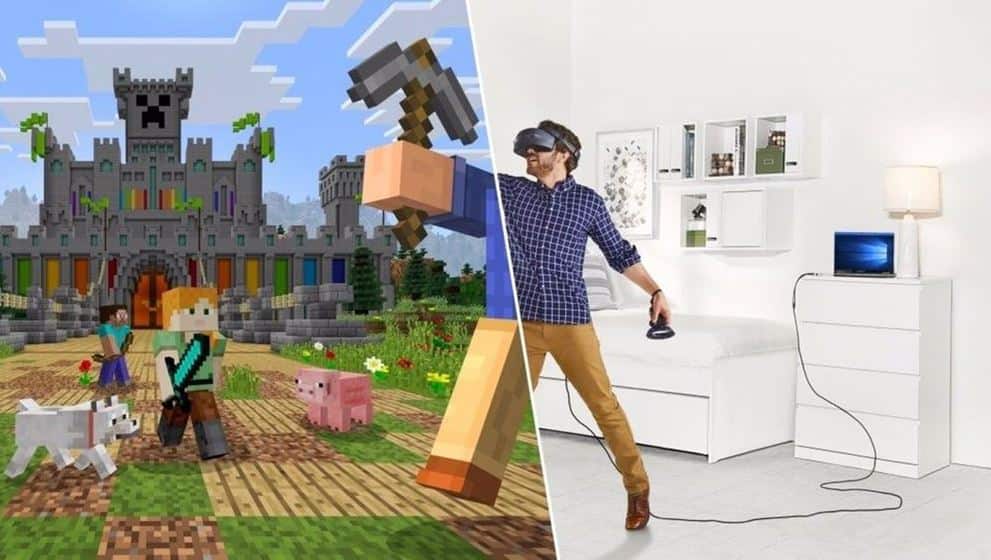Microsoft replaces WinRT APIs with OpenXR for HoloLens 2 and Windows Mixed Reality
3 min. read
Published on
Read our disclosure page to find out how can you help MSPoweruser sustain the editorial team Read more

Back in 2017, Microsoft joined OpenXR, a standard designed to improve interoperability between the various applications and hardware interfaces used in VR. In early 2019, Microsoft released a preview version of OpenXR runtime for Windows Mixed Reality platform based on the OpenXR draft spec. In July 2019, Microsoft released the first OpenXR 1.0 runtime that supports mixed reality, for all Windows Mixed Reality and HoloLens 2 users.
Right now, with OpenXR, you can develop engines and apps that target HoloLens 2 with the same API that you use to target PC VR headsets, including Windows Mixed Reality headsets, Oculus Rift headsets and SteamVR headsets. Since OpenXR-based apps are portable across hardware platforms, Microsoft is stopping the development of legacy WinRT APIs. Existing WinRT API-based apps will continue to work on HoloLens 2 and Windows Mixed Reality, but Microsoft will not add any new features to WinRT APIs.
You can starting developing for OpenXR in Unity and Unreal Engine. Find the details below.
OpenXR in Unity
Today, the supported Unity development path for HoloLens 2, HoloLens (1st gen) and Windows Mixed Reality headsets is Unity 2019 LTS with the existing WinRT API backend. If you’re targeting the new HP Reverb G2 controller in a Unity 2019 app, see our HP Reverb G2 input docs.
Starting with Unity 2020 LTS, Unity will ship an OpenXR backend that supports HoloLens 2 and Windows Mixed Reality headsets. This includes support for the OpenXR extensions that light up the full capabilities of HoloLens 2 and Windows Mixed Reality headsets, including hand/eye tracking, spatial anchors and HP Reverb G2 controllers. A preview version of Unity’s OpenXR package will be available later this year. MRTK-Unity support for OpenXR is currently under development in the mrtk_development branch and will be available alongside that OpenXR preview package.
Starting in Unity 2021, OpenXR will then graduate to be the only supported Unity backend for targeting HoloLens 2 and Windows Mixed Reality headsets.
OpenXR in Unreal Engine
As of Unreal Engine 4.23, full support for HoloLens 2 and Windows Mixed Reality headsets are available through the Windows Mixed Reality (WinRT) plugin.
Unreal Engine 4.23 was also the first major game engine release to ship preview support for OpenXR 1.0! Now in Unreal Engine 4.26, support for HoloLens 2, Windows Mixed Reality and other desktop VR headsets will be available through Unreal Engine’s built-in OpenXR plugin. Unreal Engine 4.26 will also ship with its first set of OpenXR extension plugins enabling hand interaction and HP Reverb G2 controller support, lighting up the full feature set of HoloLens 2 and Windows Mixed Reality headsets. Unreal Engine 4.26 is available in preview today on the Epic Games Launcher, with the official release coming later this year. MRTK-Unreal support for OpenXR will be available alongside that release as well.
If you’re building your own DirectX engine for HoloLens 2, Windows Mixed Reality or other PC VR headsets, Microsoft now recommends OpenXR.
Source: Microsoft








User forum
0 messages